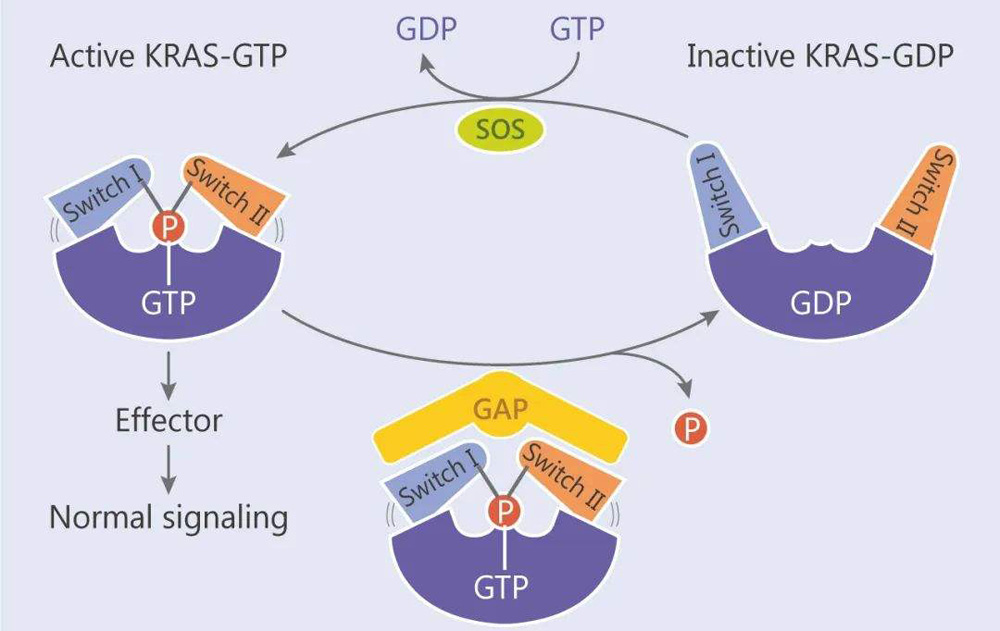Kras is a murine sarcoma virus oncogene. There are three genes in the ras gene family associated with human tumors—H-ras, K-ras, and N-ras, which are located on chromosomes 11, 12, and 1, respectively. K-ras is also known as p21 gene because it encodes a 21kD ras protein. Of the ras genes, K-Ras has the greatest impact on human cancers, acting like a molecular switch: when normal, it controls the pathways that regulate cell growth; when abnormal, it causes cells to continue growing and prevents them from self-destruction. It is involved in intracellular signal transmission. When the K-ras gene is mutated, the gene is permanently activated and normal ras protein cannot be produced, resulting in disordered intracellular signal transduction, uncontrolled cell proliferation and canceration.
Kras gene importance
The K-ras gene is like a “switch” in the body. It plays an important role in regulating the signal transduction pathways of tumor cell growth and angiogenesis. The normal K-ras gene can inhibit the growth of tumor cells. It will continue to stimulate cell growth, disrupt the growth pattern, and lead to the occurrence of tumors.
K-RAS gene is a signaling protein in the “downstream region” of the intracellular signaling pathway, which has important effects on cell growth, survival and differentiation. In clinical treatment, patients of the same gender, same age, and even the same stage use the same drugs, and some have good curative effects, while others have poor curative effects. Therefore, treating the same disease differently, implementing individualized treatment and individualized targeted drug therapy, has become the best choice for doctors and patients.
Kras genetic testing
The K-ras gene can be in a normal state (called wild type) or an abnormal state (mutant type). Under normal physiological conditions, when cells are stimulated by external stimuli to activate signaling pathways such as EGFR, wild-type K-Ras is phosphorylated by tyrosine kinases such as active EGFR and then temporarily activated. The activated K-Ras can activate the signaling pathway. downstream signaling proteins, and then K-ras is rapidly inactivated. The K-Ras activation/inactivation effect is controlled. The mutant K-Ras protein leads to abnormal protein function, which is still in an activated state without the stimulation of EGFR activation signal, and its functional state is uncontrollable, resulting in the continuous proliferation of tumors.
Clinical significance of K-ras gene detection (K-ras, p21)
Detection of K-ras gene mutation is an important indicator to deeply understand the situation of oncogenes, understand the development and prognosis of various cancers, and the efficacy of radiotherapy and chemotherapy.
1. K-ras gene mutation occurs in the early stage of tumor malignancy, and the K-ras gene of primary and metastatic lesions is highly consistent. It is generally believed that K-ras gene status does not change with treatment.
2. K-ras gene mutation is found in 20% of non-small cell lung cancer (NSCLC), of which lung adenocarcinoma accounts for 30% to 50%.









